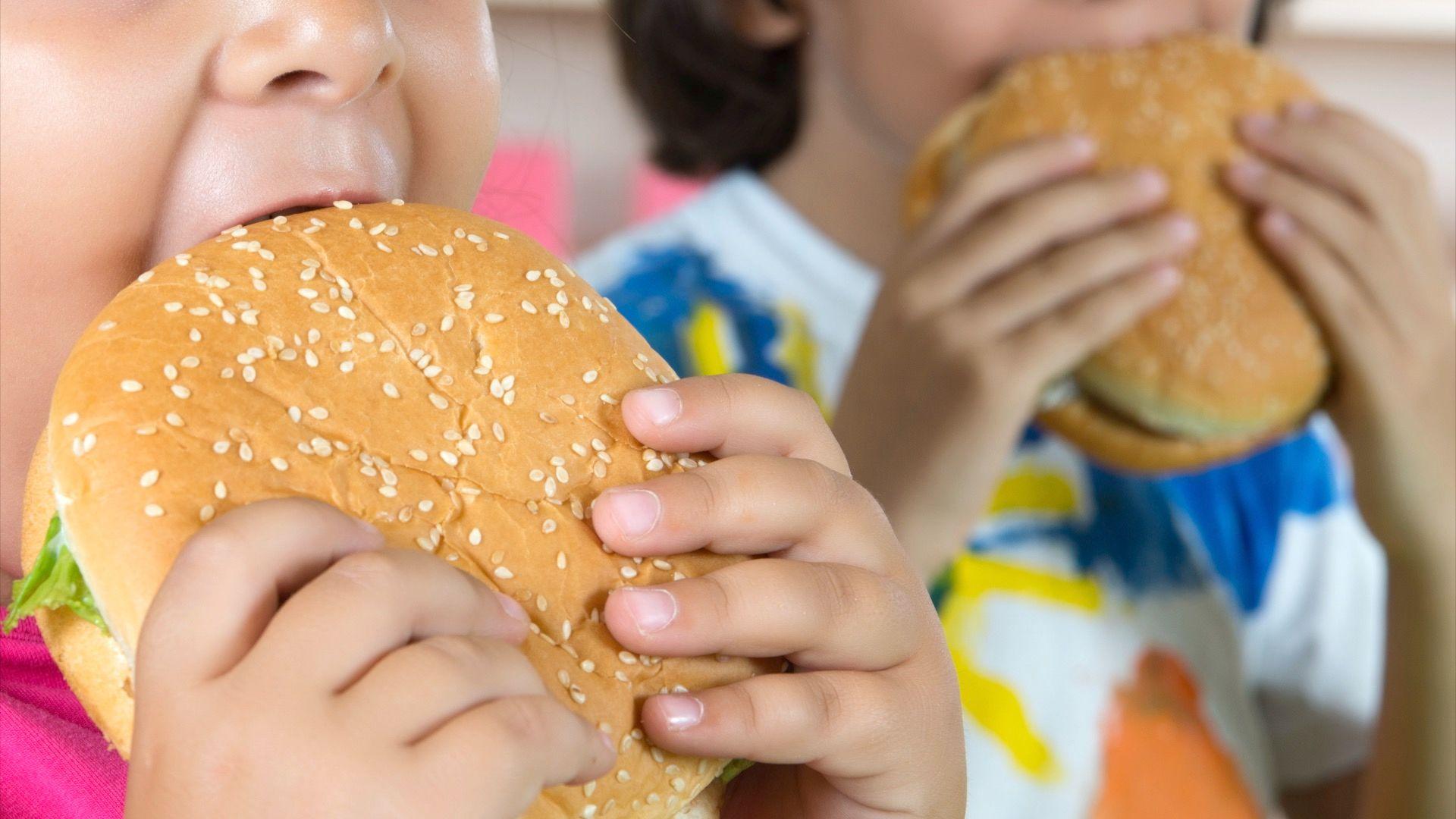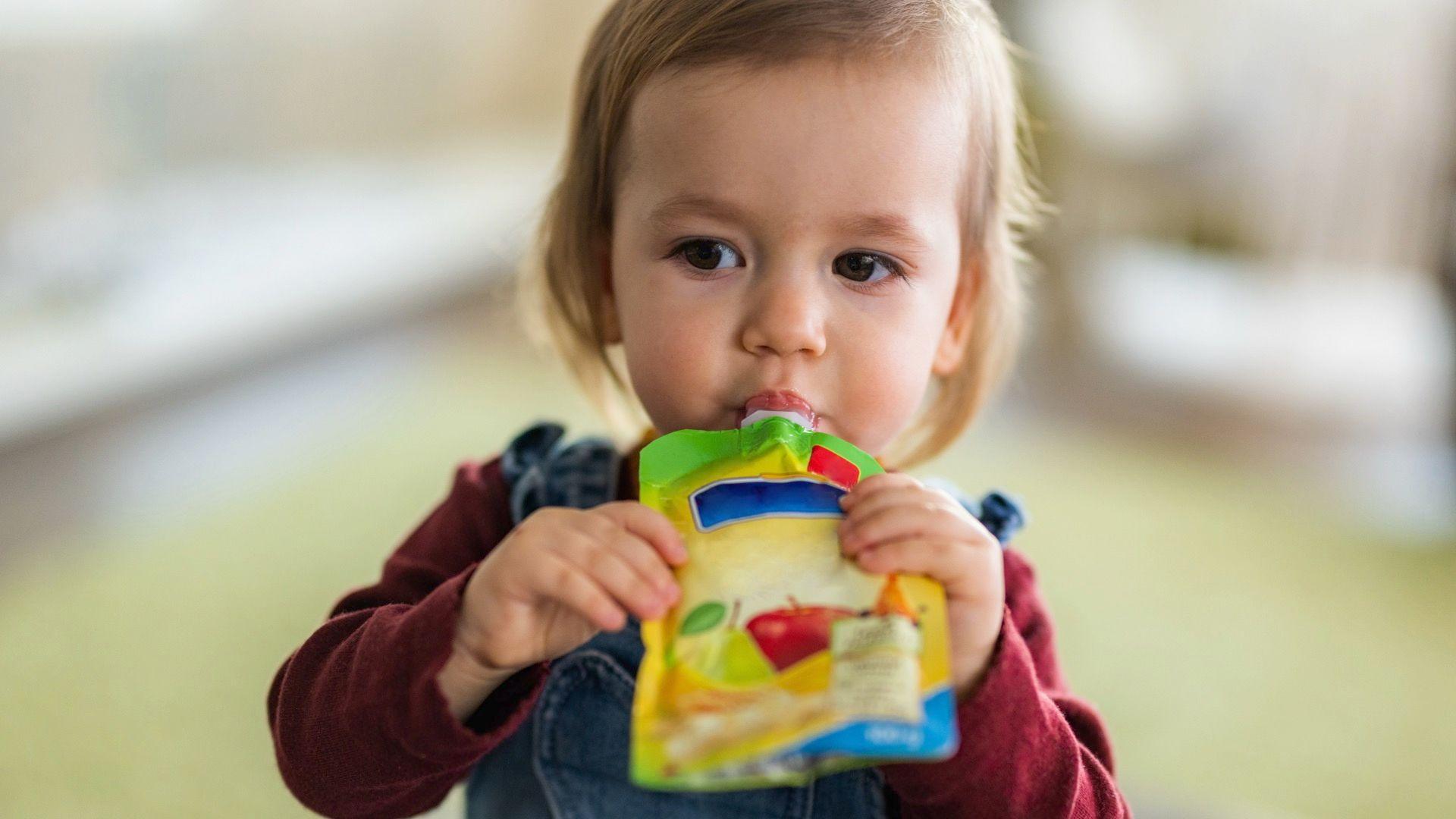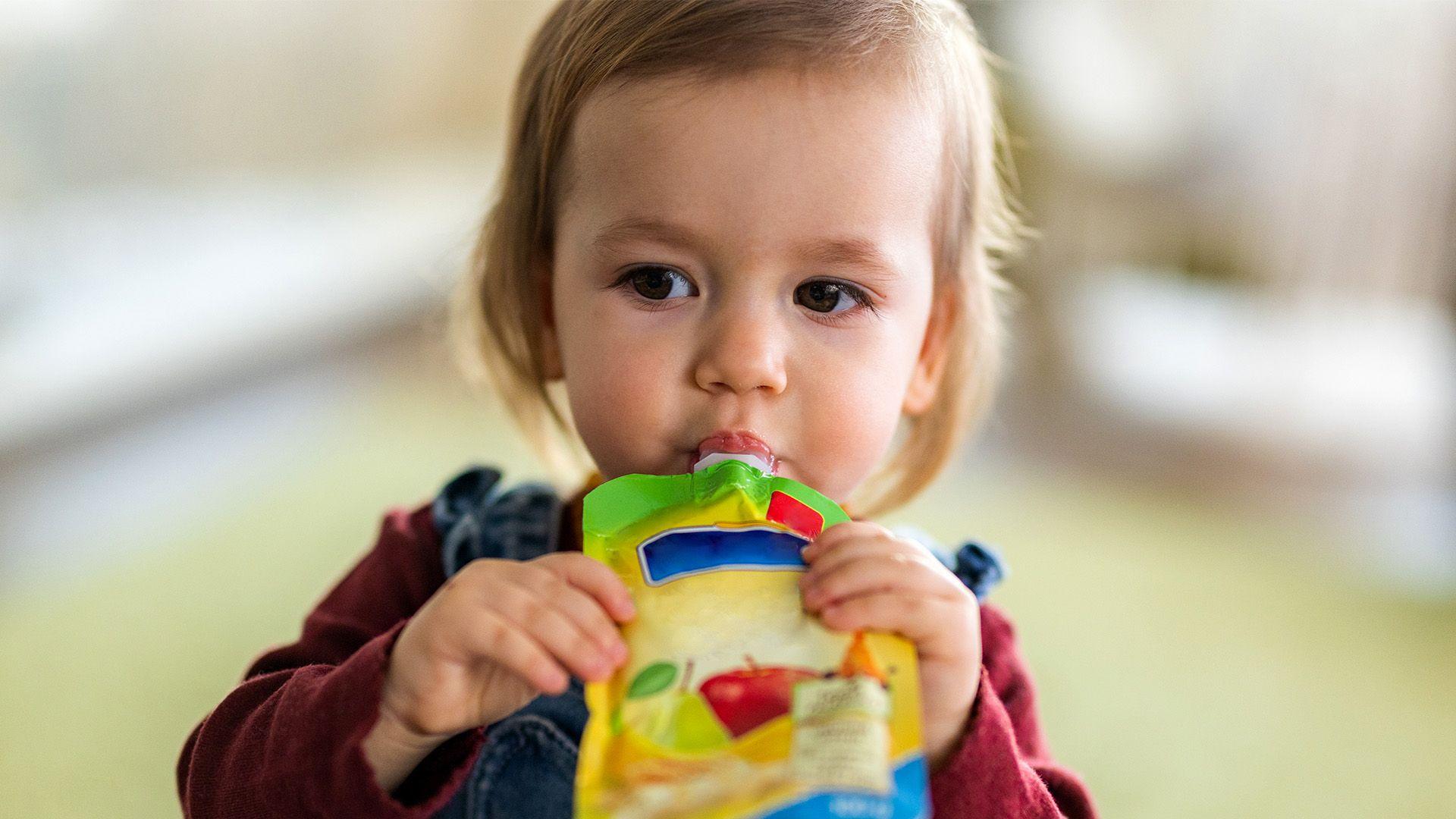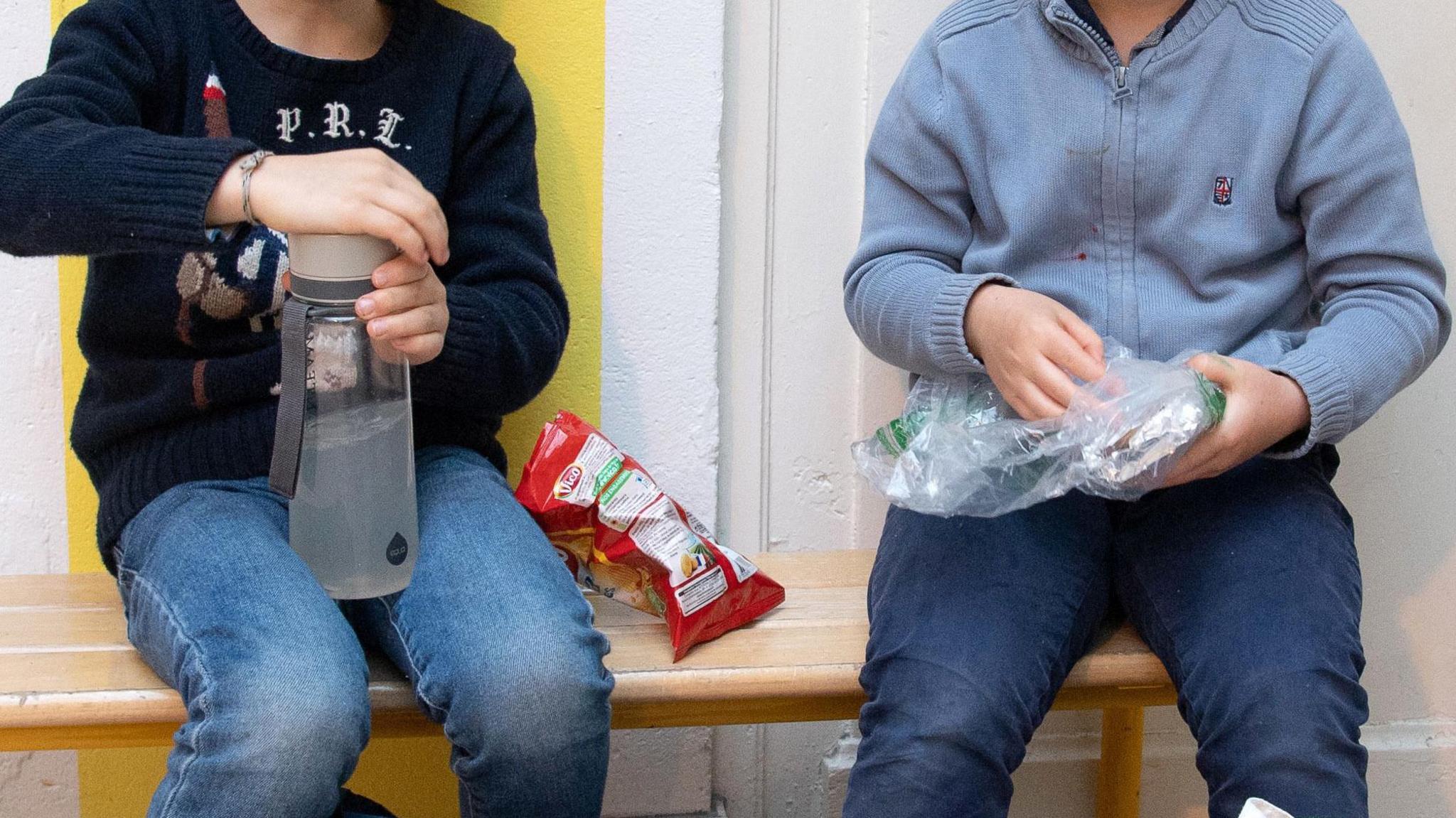Cost an obstacle to a healthy nursery lunch - study

More than a fifth of children in Essex aged four to five years old are obese or overweight
- Published
Rising prices and children's reluctance to try new foods are two of the biggest obstacles to providing healthy meals to under-5s, according to a new report.
Nourishing Our Future is the first-ever study examining food and nutrition in preschools in Essex - a county where 21% of reception-age children are obese or overweight.
The study, carried out by Anglia Ruskin University (ARU) and commissioned by Essex County Council, also identified that many lunchboxes of two to four-year-olds contained pouches of baby food.
The findings were presented to MPs at the House of Commons on Wednesday by the authors of the study, who said a nationally-funded early years food scheme was needed.
Lunchboxes 'never vary'
Nearly 70 of Essex's 300 preschools took part in the study. Of those, 59% considered the cost of food to be the greatest challenge to healthy eating, with children's food preferences and allergies the second biggest factor.
Most settings only had basic food preparation facilities, such as a microwave, with two-thirds of children in Essex bringing their own food to preschool in the form of parent-provided lunchboxes.
The nurseries said they contained more processed food with lower protein content and fewer fruits and vegetables than meals provided by preschools.
One preschool told the report: "Children are sometimes not used to being encouraged to try anything new! This is evident in some lunchboxes, where the contents never vary."
The rising cost of food was consistently highlighted within the report, with one preschool saying: "Fresh food is increasing in price all the time; food purchasing in general has risen significantly over the last two years."
Another contributor said it was difficult to provide food on a budget whilst allowing for intolerances and allergies.
"We really try to accommodate food allergies, but more and more children are showing [as] intolerant and [have an] allergy, and it is really increasing our spending on food," they said.

The report found many lunchboxes of two to four-year-olds contained pouches of baby food
The report recommends a nationally funded early years food scheme to support both preschool and parent-provided meals.
"Although there is a great deal of excellent work being done by preschools across Essex, there is a need for action to improve the nutritional landscape for young children, including improving children's relationship with food," said Dr Kay Agronricks, school of education head at ARU.
"We would like to see appropriate national funding for preschools to allow them to provide healthy food for all children.
"However, simply replacing lunchboxes with setting-provided food for one meal a day won't solve the wider issues for the child or their family, such as what will they eat at the weekend or during the holidays."
She also acknowledged there were wider societal issues to consider, such as the convenience of ultra-processed food and the targeted marketing of foods which are high in fat, salt and sugar.
Dr Agronricks, along with Emily Fallon and Susie Threadgold of Essex County Council, presented the report's findings to MPs at an event held by the Food Foundation at the House of Commons.
John Spence, cabinet member for children's services, adult social care, public health and integration at Essex County Council, said the local authority was pleased to work with ARU on the project.
"This has helped us to better understand how food education is already prioritised within settings, as well as explore some of the challenges facing some families and early years settings around child nutrition and how these can be addressed," he added.
Get in touch
Do you have a story suggestion for Essex?
Follow Essex news on BBC Sounds, Facebook, external, Instagram, external and X, external.
- Published28 April

- Published1 September 2024
